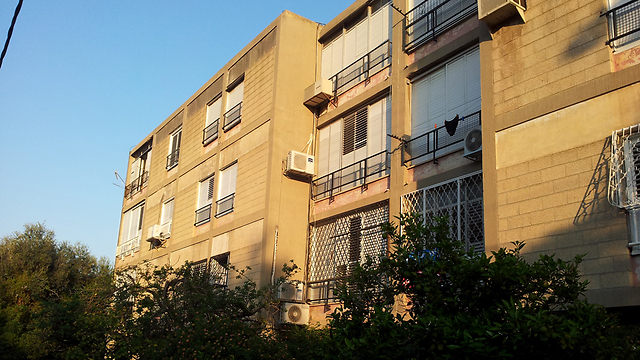
Report: Apartments allocated for public housing used for synagogues
While eligible families wait for housing, public apartments being used for resorts, synagogues, Comptroller's report says
The report indicated that out of the thousands of apartments not being used for their purpose, 240 apartments unlawfully rented are being used to house local authority and private business workers, and even noted an apartment being used as a resort for a private company.
Related stories:
- Akko: Displaced Arabs get public housing
- Approved: 1,341 housing units for senior citizen olim
- Public Housing Bill passes first reading
Some 233 public housing apartments are used for synagogues, and the report revealed that most synagogues pay rent late or do not pay it at all, and that the State does not require payment in any consistent way.
In Rosh Pina, two apartments were rented to local synagogues. The report stressed that these could be used for individuals with disabilities, individuals who struggle deeply to find public housing. Despite the State requesting the eviction of the apartments, they are still – seven years later – being used for synagogues.
Similarly in Dimona, a four-bedroom apartment was shown to be used by a senior employee of the local authorities – without permission from the Construction and Housing Ministry and without checking, as legally needed, if any eligible families or individuals need the apartment. Only in 2010 did the Amidar Company demand local authorities to return the apartment to the ministry's use, but by the time of the Comptroller's report, the employee was still residing there.
Apartments that have been set aside for public housing have been rented for other purposes for as long as ten years. Some apartments are used to house students, and while some pay in service to community, some Yeshiva students do not pay for it at all. The State Comptroller criticized the omission heavily saying it was caused by State organizations, mainly the Construction and Housing Ministry, "looking the other way" and forsaking families and individuals desperately in need of public housing
Lital Bar, public housing activist, said in response to the report: "In Israel 2013, there are laws for the strong and laws for the weak, and the weak pay the price. It's unthinkable that the State is requesting people who live in poverty to maintain the laws that keep them poor, while the rich do whatever they want."
The Construction and Housing Ministry responded saying that "The ministry is happy for the criticism by the Comptroller regarding public housing, as it will hasten treatment of this issue. The ministry has and will continue to work for the benefit of those eligible for public housing.
"It's important to mention that about 1,000 apartments out of the apartments the Comptroller examined have never been set aside for public housing but were rather built for State use in the first place; it is a computer error that lists them as apartments for public housing."
Omri Ephraim contributed to this article
- Receive Ynetnews updates directly to your desktop











